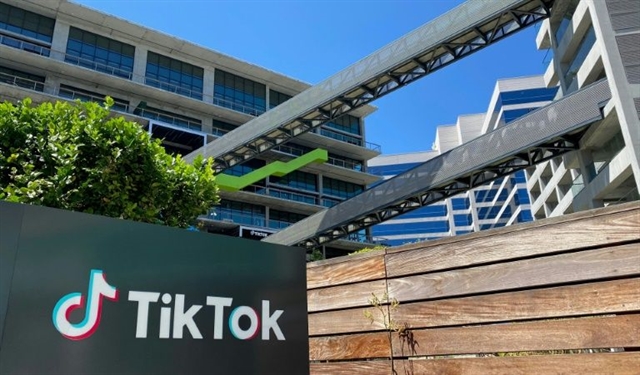 World
World


|
| The United State's move to bar video-sharing service TikTok from operating on its soil is the latest escalation in worsening relations between the two economic powers. — AFP/VNA Photo |
WASHINGTON — Negotiators from the United States and China will on Saturday discuss the "phase one" trade deal signed earlier this year -- before the coronavirus slammed the world economy and relations between the two economic powers took a turn for the worse.
Washington and Beijing's January deal represented a partial truce in their months-long trade war, and obligated Beijing to import an additional US$200 billion in American products over two years, ranging from cars to machinery to oil to farm products.
But purchases of those goods have been lagging, while US President Donald Trump has stepped up rhetoric against China ahead of what's expected to be a tough fight for a second term in the November elections, raising questions about the deal's fate as well as the possibility of a second phase of the truce.
"The outcome of the trade talk will signal if both sides are willing to continue to keep the deal, which will signal whether the relationship will deteriorate further," said Iris Pang, chief economist for greater China at financial services giant ING.
Neither the US nor the Chinese government confirmed the talks to AFP but the deal mandates meetings every six months after it takes effect, which would be Saturday.
Even with tensions high and both countries reeling from the shock of COVID-19 -- which has caused a historic contraction in global growth and trade -- analysts don't expect the talks to produce major changes in the agreement.
And if anything does happen, Washington would be the catalyst.
"Until now, China has been relatively passive and the United States has been relatively proactive," said Raymond Yeung, chief economist for greater China at ANZ bank. "In my opinion, there shouldn't be much change coming from China in terms of trade, cooperation or opening up the market, the key still lies in the US side."
Tensions worsening
The comity of the deal's signing in Washington has been overshadowed in recent months as Washington and Beijing have traded barbs over who is to blame for the coronavirus, which first surfaced in China.
Also worsening tension is the Trump administration's order to bar Chinese internet giants TikTok and WeChat from operating in the US.
US Trade Representative Robert Lighthizer in June said China would follow through on its commitments while Washington eyes a second deal, but that same month a Chinese State Council counsellor said the COVID-19 pandemic has had an "impact" on the deal and that relations between the countries are "very unsatisfactory."
The US-based Peterson Institute for International Economics said Chinese agricultural purchases at the end of June were far from where they should be at that point in the year.
They had reached only 39 per cent of their semi-annual target, according to US figures, or 48 percent, based on Chinese figures. — AFP




